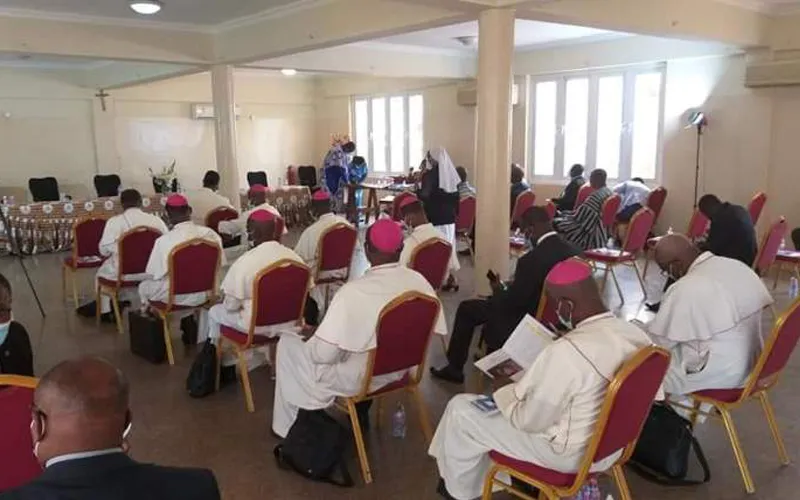In their collective statement, CCG and GCBC members decry illegal mining saying the practice that is also known as “galamsey” has been going on despite efforts to stop it.
“On our various pastoral and social visits to some localities, we see the destruction of forests and the cutting down of cash crops for the purpose of galamsey,” the church leaders say, and add, “The galamsey menace has polluted our land (soil) and water bodies with chemicals like mercury, chlorine, cyanide and arsenic (which are harmful to human).”
They call on the Ghanaian government, concerned agencies and institutions, and members of the public to “be bold and courageous to sustain the campaign against illegal mining.”
“We demand that any individual, security service personnel, politician or chief found to be working to thwart the fight against illegal mining face the full rigors of the law,” they further say.
They encourage faith-based leaders to “continue their advocacy against illegal mining” and urge traditional leaders to “use their authority to ban galamsey in their jurisdictions to avoid further destruction of our natural resources.”
(Story continues below)
The leaders advocate for the Green Ghana Project initiated by the country’s President to plant five million trees saying the initiative “has the potential to reverse the dreadful loss of our forest cover while contributing to mitigating climate change impact in Ghana.”
CCG and GCBC members further say that they are concerned about the non–adherence of some Ghanaians to the COVID-19 protocols.
“We wish to appeal to our fellow citizens to observe religiously all the COVID–19 hygienic protocols. Let us all stay safe by wearing our face masks, observing social distancing, washing our hands regularly under running water with soap and also use the hand sanitizer frequently,” they urge.
The government needs to do everything possible to “get the needed vaccines for the various target groups of the nation as planned and to secure the second dosage for those who have had their first vaccinations to complete the process,” the church leaders say.
“We believe that vaccination is an act of good neighborliness, which is a mark of good Christian spirituality. When one accepts the vaccine, one does not only protect oneself from getting the disease but also protects others by stopping transmission,” they explain, encouraging all Ghanaians to “avail themselves for their vaccination when the time comes.”
Reflecting on the 2021 Population and Housing Census (PHC) scheduled for June 28 – July 11 in Ghana, the leadership of CCG and GCBC “humbly appeals to all citizens of our country to avail themselves for counting.”
“We call on all Christians not to shy away from the Census but to see it as an opportunity to exercise their civic responsibility and to help in the developmental planning of the nation,” they say.
They assure all Ghanaians that they plan to “continue our public education, Christian advocacy and prayers for peace, harmony, and justice in Ghana.”
“In doing so, we will continue to be non-partisan and be guided by the principles of the Holy Bible. We wish all Ghanaians well in the name of our Lord Jesus Christ,” CCG and GCBC members say in their May 7 collective statement.
Jude Atemanke is a Cameroonian journalist with a passion for Catholic Church communication. He holds a Bachelor’s Degree in Journalism and Mass Communication from the University of Buea in Cameroon. Currently, Jude serves as a journalist for ACI Africa.








